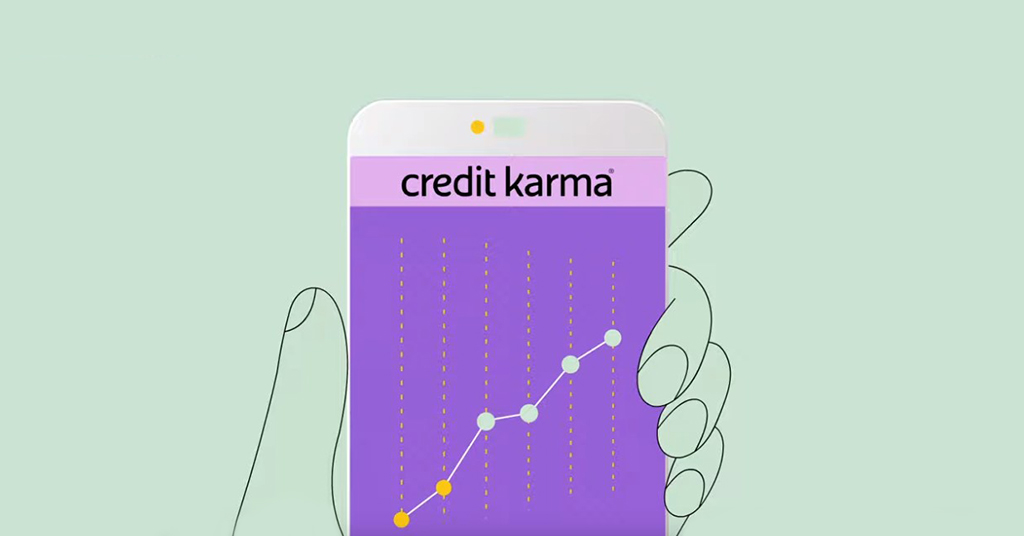Credit Karma offers free credit scores and reports

Everything you need to know about Credit Karma. Source: youtube.com
Today PaySpace Magazine would like to talk about credit scores, and hence, Credit Karma.
What is Credit Karma?

Credit Karma is an American company best known as a free credit and financial management platform. The firm was launched in 2007 by Kenneth Lin, Ryan Graciano, and Nichole Mustard. In other words, the company can provide you with free credit scores/reports, implement tax preparation, monitor unclaimed property databases, and even determine and dispute credit report errors.
First and foremost, let’s find out what they mean by “credit score”.
A credit score is a numerical expression based on a level analysis of a person’s credit files, to represent the creditworthiness of an individual. A credit score is primarily based on a credit report, information typically sourced from credit bureaus.
In other words, lenders (banks, private lenders, etc) can evaluate risk related to lending money to clients with the help of a credit score. Moreover, this also helps in determining credit limits and interest rates.
Does Credit Karma provide actual and accurate data?

Credit Karma will give you its credit rating absolutely free. Source: youtube.com
It seems too good to be true: Credit Karma will give you its credit rating absolutely free. All you have to do is register on creditkarma.com and you will immediately see your credit score. We are sure you’ve heard the cliché: “You get what you pay for.” Is it safe to use a free credit score app, considering that such data can be classified as your personal information, especially if we are talking about a digital era with hackers, data breaches, etc (you know what we mean?). Here’s a look at what Credit Karma provides, and whether it is worth using its financial management service.
The principle
According to its website, Credit Karma believes that you have a fundamental right to know (as well as see) your credit rating. The logic is that if you’ve got this knowledge, you are more likely to pay your bills on time, hence you’d avoid any debt issues. In other words, if you know your credit score, you feel more confident. On the other hand, the companies concerned don’t have to spend money and time trying to collect what you owe them. It seems that we have a win-win situation for all here!
Of course, it is hard to call this move an altruistic one. Credit Karma is a commercial business and it is offering you something for free, but it is making money in another way.
The company’s revenue model for customers, posted on the internet, states that when you get access to a free loan, Credit Karma will show you personalized offers based on your credit profile. These offers come from advertisers who share their vision of consumer empowerment. If you want to take advantage of their offers, it is up to you. Credit Karma is trying to regain power and give the right to choose to the consumer.

Credit Karma is trying to regain power and give the right to choose to the consumer. Source: facebook.com
Credit Karma makes money in two major ways. Firstly, it places advertisements on the page along with your credit score and hopes that you will respond to these ads. Secondly, since Credit Karma tells you your credit rating, it would be logical to presume that its system knows a lot about you, and it can meticulously adapt ads to your spending habits. More targeted ads are better for advertisers since they don’t spend money on advertising for people who will never use their products/services. With over 40M active users, Credit Karma has a solid revenue model.
In general, Credit Karma makes money by providing you with free data in exchange for learning more about you and charging advertisers for the ads you see.
Can the app tell you a precise credit score?
A lot of the market experts ask themselves why consumers still trust Credit Karma, and believe that the company provides actual data they can rely on (as an accurate idea of a credit rating).
Information on credit scores and credit reports comes from TransUnion and Equifax, which are two of the three major credit bureaus. Credit Karma provides VantageScore 3.0 credit scores independently of both of these credit bureaus. Credit Karma opted for VantageScore 3.0 because it is a collaboration between the major credit bureaus and a transparent assessment model that gives consumers a better understanding of their credit rating changes. During 2015-2016, more than 2,500 lenders, including six of the ten largest banks, used nearly a billion VantageScore credit ratings to assess consumer creditworthiness.
What is a VantageScore?
You have probably heard of FICO scores, perhaps the most famous ones. Many people still do not know that FICO does not actually collect your credit information. FICO makes an assessment of these very scores by looking at customers’ files from three major credit bureaus – TransUnion, Equifax, and Experian.
VantageScore does the same things as FICO, but in a different way.
VantageScore went through several versions before VаntаgеSсоre 3.0 debuted in 2013 (the first version was introduced in 2006). This new version became so successful that, according to research, no less than 6B VаntаgеSсоre credit scores informed lending decisions in the 12-month period from July 2016 until June 2017.
The latest version of the model (VаntаgеSсоre 4.0) was introduced in 2017, but still, a lot of lenders keep using VаntаgеSсоre 3.0.

Credit Karma provides VantageScore 3.0 credit scores. Source: youtube.com
VantageScore 3.0 credit scores range from 300 to 850, and these are the major assessment categories:
- Payment history (around 40%)
This is the most significant factor in the VаntаgеSсоre 3.0 credit. It means that lenders are eager to know whether you are consistently paying your bills on time.
- Age and type of credit (around 21%)
VаntаgеSсоre 3.0 needs to know the number and age of your open credit accounts. (You do not have to worry if you think it refers to your age. On the contrary, it has nothing to do with your actual age.)
- Credit utilization (around 20%)
A lender usually wishes to understand what type of borrower you are. For example, if you tend to use a high percentage of your available credit, then it can make a not so positive assessment.
- Balances (around 11%)
This is about the previously reported balances (related to credit accounts). In other words, it is good to have low balances on your credit accounts. Thus, a lender can understand that there is a better chance you’ll keep paying on time.
- Recent credit (around 5%)
Do you have any new open credit? Maybe you have applied for one recently? It is interesting for lenders as well.
SEE ALSO: How to accept credit card payments









